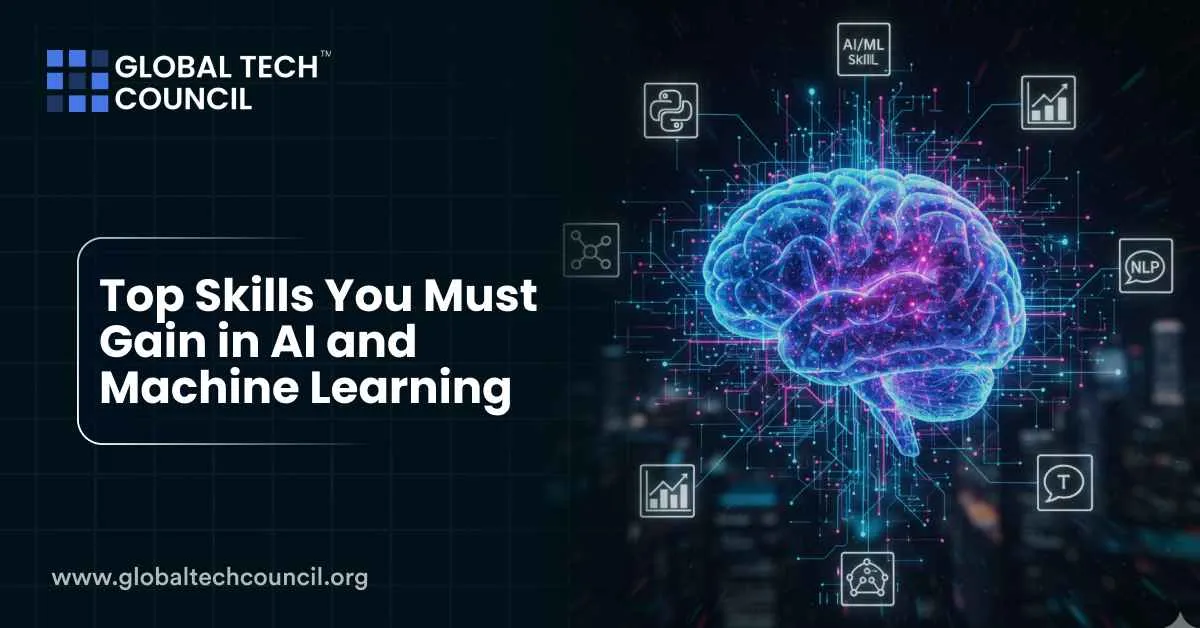 Artificial Intelligence and machine learning are no longer niche technologies. They are core drivers of innovation in industries like finance, healthcare, marketing, and manufacturing. If you want to secure a strong position in this competitive field, knowing the right skills to learn is essential. This guide explores the most valuable technical and strategic skills you can gain to boost your career in AI and machine learning today.
Artificial Intelligence and machine learning are no longer niche technologies. They are core drivers of innovation in industries like finance, healthcare, marketing, and manufacturing. If you want to secure a strong position in this competitive field, knowing the right skills to learn is essential. This guide explores the most valuable technical and strategic skills you can gain to boost your career in AI and machine learning today.
Technical Skills That Matter Most
Programming and Frameworks
Proficiency in programming is the foundation of AI work. Python remains the most popular choice because of its simplicity and powerful library ecosystem. R is highly valued for statistical modeling, while Java is often used in large-scale enterprise applications. Mastering frameworks such as TensorFlow, PyTorch, and Scikit-Learn can make your project development faster and more efficient. If you are looking for a structured way to start, an AI course can help you learn these tools in an organized manner.
Machine Learning and Deep Learning
A deep understanding of machine learning algorithms allows you to solve varied problems, from predicting customer behavior to diagnosing diseases. Knowledge of computer vision, reinforcement learning, and natural language processing expands your project possibilities. For professionals aiming to master advanced concepts, pursuing an ML course can provide both theoretical knowledge and practical applications.
Data and Infrastructure Skills
AI projects rely on clean, well-structured data and scalable systems. Skills in data engineering, including pipeline creation, transformation, and storage, are crucial. AI engineering also covers integrating systems, testing for accuracy, and ensuring compliance with ethical guidelines.
AutoML and Causal AI
Automated machine learning (AutoML) streamlines repetitive tasks such as algorithm selection and parameter tuning. Causal AI is becoming increasingly important for understanding cause-and-effect relationships, which can improve decision-making in areas like policy design or financial risk analysis.
Explainable AI (XAI)
Transparency builds trust in AI solutions. Tools like SHAP, LIME, and feature importance analysis help you explain model predictions to both technical and non-technical audiences.
Core Technical Skills in AI and Their Impact
| Skill Area | Tools or Concepts | Career Benefit |
| Programming & Frameworks | Python, R, Java, TensorFlow, PyTorch, Scikit-Learn | Faster, more efficient model creation |
| Machine Learning Techniques | NLP, computer vision, reinforcement learning | Ability to tackle diverse problem sets |
| Data Engineering | ETL pipelines, cloud storage, data warehousing | Scalable AIsystem performance |
| Explainability | SHAP, LIME, partial dependency plots | Builds transparency and stakeholder trust |
Strategic and Soft Skills for AI Professionals
Systems Thinking and Orchestration
AI is rarely just about algorithms. Understanding how different components work together allows you to design more effective solutions. This holistic approach, sometimes called creative orchestration, is highly valued by employers.
Ethics, Fairness, and Responsible AI
Responsible AI design ensures that systems operate fairly and without unintended bias. Professionals skilled in bias detection and ethical compliance are increasingly in demand.
Analytical Reasoning, Communication, and Innovation
Beyond technical knowledge, you need to communicate results clearly, think critically, and adapt to changing technology landscapes. This combination of skills is often the deciding factor in career advancement.
Strategic Skills for Long-Term AI Career Success
| Skill Area | Why It’s Important | Practical Example |
| Systems Thinking | Aligns AI solutions with organizational objectives | Designing integrated supply chain AI systems |
| Responsible AI Practices | Meets social and legal expectations | Detecting bias in recruitment tools |
| Analytical and Communication | Builds team efficiency and clarity | Presenting AI model outputs to executives |
| Innovation and Adaptability | Keeps skills relevant in a fast-changing market | Learning a new AI framework for a pilot project |
Emerging Trends to Watch
AI Literacy for All Professionals
AI literacy is now seen as an essential workplace skill, even for non-technical staff. Understanding AI’s capabilities and limitations improves collaboration between departments. This is where specialized training like a Data Science Certification can be valuable, especially for roles that bridge technology and business.
Career Planning in AI and Machine Learning
As more companies integrate AI solutions, certifications and structured learning paths have become vital. Obtaining an AI and machine learning certificate can enhance credibility. For those aiming at advanced industry roles, a Deep tech certification from the Blockchain Council is an excellent choice. If leadership and growth strategy are your focus, a Marketing and Business Certification will add value to your career plan.
Conclusion
Success in AI and machine learning requires a mix of technical expertise, strategic thinking, and ongoing learning. From mastering Python and TensorFlow to understanding ethical AI, the right skills will keep you relevant in an evolving industry. By choosing the right courses, certifications, and practical experiences, you can position yourself as a sought-after professional in one of the most dynamic fields today.
Leave a Reply